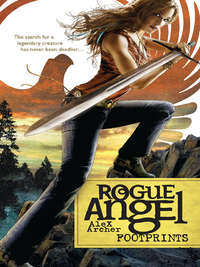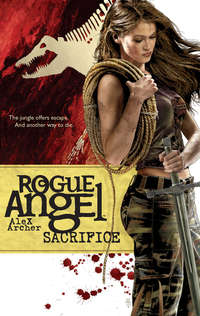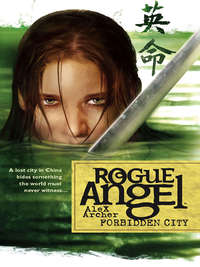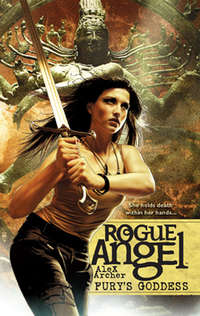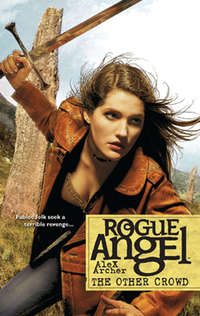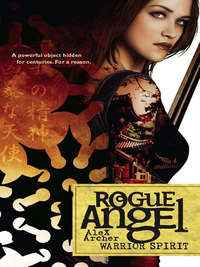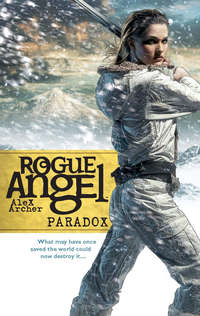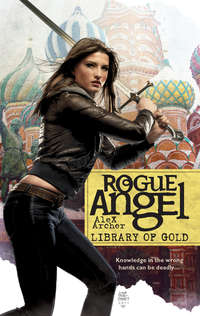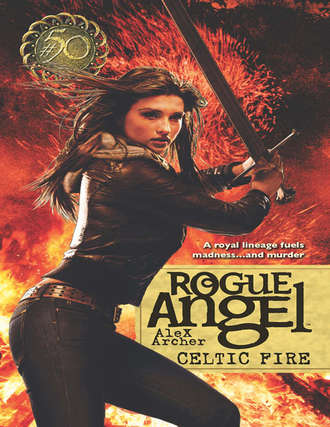
Полная версия
Celtic Fire
“The question remains—what are you going to do with it?” He still hadn’t conceded that it could be the real thing, never mind that it was. Awena hadn’t really thought much beyond liberating the whetstone.
“I’ll keep it safe until Dad comes home.”
“If he comes home, you mean.”
“He’ll be back,” she said. “He always comes back.” Which was true, but there was no way of knowing when. She was planning on accelerating the process by sending a photo of the whetstone to his cell phone. With luck it would be enough to bring him running.
Geraint covered the stone with the blanket. It was as though he didn’t want to have to look at it.
Awena decided that it might be for the best if she adhered to the old adage of out of sight, out of mind. If he didn’t keep being reminded of it, maybe they wouldn’t have to talk about it until they knew for sure she was right.
She tried hard to hide her disappointment by asking, “How was your trip?”
“Not bad,” he replied, nothing more.
When he’d come bursting into the house he’d been so full of life, desperate to tell her all about his trip; now it was just “not bad,” as though what had happened was suddenly unimportant. The theft had sucked all the joy out of his life. She hadn’t for a minute considered the prospect that he’d see it not as the beginning of some grand adventure they could go on together, but rather her catching their father’s particular madness.
The sooner the stone was out of sight, the better—that much was clear.
The best place for it was in their father’s study.
Geraint never went in there.
He wasn’t interested in reading the volumes and volumes of notes that made up Dad’s journals, the vast quantities of used and battered books he used as his points of reference for the great hunt, or the huge chart hanging proudly on the wall, tracing back their family tree to the last of the true princes of Wales.
The room contained a lifetime’s work, a lifetime’s obsession.
Geraint was right, though; she was in danger of following in his footsteps. She really was her father’s daughter. She was more than capable of becoming obsessed with the search, even though she knew most of them would never be found. There were worse things that might consume her life, especially now that she’d found one of the lost treasures. And didn’t finding one prove the existence of all of the others? In all the years her father had been hunting, he’d never laid his hands on a single one of them. And yet that only fueled his obsession. How would he react now, to actually hold one of them in his hands? To know he’d been right all this time. How would he take that vindication?
What he’d never said on those rare occasions when they’d talked about the quest was what he would do if he ever found one of them. What they did talk about was the history of oppression that was the foundation of Wales, how the English had beaten them down into submission and how these lost relics really were the inheritance of her people. They may have been called the Treasures of Britain, but they belonged to the Celts, not the invaders who came later. These treasures had nothing to do with the Romans, the Danes or the French who invaded their shores. Some of the treasures had their histories in Scotland, but the only documents which recorded their existence were in the Welsh Triads.
They were the Treasures of Wales.
Something to be treasured by all pure-blooded Celts like her family.
Chapter 9
He had tried several times to get a better look at the peculiar pieces of stone during the daylight, but every time he did his presence drew curious looks from visitors and cathedral staff. He tried standing on it again to see if he could replicate that weird voice, but the stone remained silent.
He hadn’t noticed the priest he had seen that morning walking across the grounds toward him.
“Can I help you at all?” the cleric asked, a gentle smile on his weathered old face. The heavy crags only served to make him appear closer to God in a literal sense.
The man wrestled down the sudden surge of panic he felt at the curate’s approach and plastered a smile on his own face. It was highly unlikely—if not impossible—that the man recognized him from their previous encounter, but if he did, what of it? He wasn’t duty bound to accept an offer of tea just to salve the curate’s conscience, and walking away was hardly a crime.
“I’m good, thanks,” he said, hoping to keep the man at a distance. “Just taking a few minutes to myself. Soaking in the ambience of the cathedral. It really is an incredible building. Inspiring.”
“That it is,” the cleric agreed, accepting his lie at face value. The curate left him to his contemplation, and as soon as the man was out of sight he crouched down again to take a closer look at the stone he’d been standing on. It was rectangular in shape and stretched almost eight feet in length, but was less than three feet wide, like a grave marker but not. It almost abutted the cathedral wall, stone hugging stone. He ran his fingers across it, sensing there was something strange about the piece of rock, even if he didn’t know what. The fact that it was so large and in a single piece was noteworthy, especially in this region, but what really interested him was why it had been placed so close to the wall. That led to a second question he hoped to answer: What was its purpose?
He ran his fingers across the surface, feeling for any irregularities in the sheet of rock, but as far as he could tell it was perfectly smooth. How long had the stone lain in place? Maybe not time immemorial, but it had certainly been there more than a few centuries. Hence the surface was so smooth, as if it had been worn down by the endless shuffle of penitents’ and pilgrims’ feet. Though given its relative position to the cathedral that was impossible, surely? He lived for a good mystery. They made life interesting.
With one fingertip he found the slightest of indentations. It was so small he almost missed it, but then he found another and knew he was onto something; something had been scratched into the rock once upon a time so long ago that the weather had worn it down to almost nothing.
He reached into his pocket and pulled out a plastic water bottle. It was barely half-full, but that should be more than enough for what he intended. He unscrewed the top and searched with his fingers again, locating the slight indent of the markings, and tipped the contents of the bottle over it.
The water splashed and ran across the surface of the stone; some of it found its way into the shallow indentations. It wasn’t about washing them away; the water turned the dirt and grime caught in the cracks a darker shade in contrast to the stone it was ground into. Even without scraping the dirt away he could read the two words that were revealed as if by magic....
Two words that meant he’d found what he had been looking for.
Giraldus Cambrensis.
* * *
IT WAS NIGHT when he returned.
It had been so hard to resist the lure of the stone, but he couldn’t risk drawing more attention; the curate noticing two men loitering around the stone in one day was coincidence enough, a third time was just downright careless. And carelessness led to questions. And questions increased the risk of discovery.
He’d done his best to scatter earth across the surface, masking the newly revealed writing long enough for the soil to dry out and leave the surface seemingly bare again. The risk was that the curate returned to take a closer look before it had dried out. But even so, in this day and age of heathens who’d forgotten their own history, would the man even know who Giraldus Cambrensis had been? It was a risk he’d rather not run, if he could help it. It was always better to go undetected than trust to blind luck and the failings of the school system.
He had brought a crowbar with him, intending to try to prize the stone out of its position and reveal what lay beneath, and with luck turning himself into a grave robber in the process. That brought a wry smile to his lips. He was still struggling to believe that after all this time he’d done it...and by chance. Years and years of focused and very deliberate study, years and years of systematic searching, and he’d almost literally stumbled upon Giraldus Cambrensis’s final resting place.
He moved slowly around the side of the cathedral, keeping to the shadows as best he could. Nosy neighbors might be a cliché, but it was a cliché born in truth as far as he was concerned.
The section of wall closest to the funereal slab was out of sight of most of the street, but working by flashlight was asking for trouble. Someone would see the beam and, even if they didn’t know what it meant, would remember they’d seen it. He needed to operate fast, and as “blind” as possible.
He found the edge of the slab by feel and, on his knees, teased the metal bar down along the edge, pushing at it to feel for its thickness before applying any weight to lever it up. Not that it was going to be easy. The slab had been in place for who knew how long. It was part of the land. It wasn’t just going to pop open. He pushed down with all of his weight and the stone shifted slightly. He pushed again, but it didn’t budge more than that first inch.
He adjusted his position, trying to get more leverage—it was basic physics. A longer bar would have helped. He slid the tip of the crowbar farther in, forcing it into the dirt and underneath the great stone slab to increase his purchase. Then he leaned into it, putting all of his weight and strength into a single huge push to try to shift it.
For a moment he didn’t think it was going to move, then he felt it tear free of the ground, opening a crack no more than six inches wide—but that was all the gap he needed to wedge a piece of wood in place.
His back and shoulders burned from the effort. He could feel the strain in all the muscles around his upper arms and his ribs.
He reached for the flashlight, but didn’t hurry. He took the time to recover his breath and give his heart the chance to slow down. He wasn’t a young man anymore. He had brought his car jack with him, despite the difficulties of concealing it beneath his coat along with the crowbar and the piece of wood he had liberated from a nearby skip. Now he slipped it into the gap beside the wood and worked the jack’s handle until it rose enough to take the weight from the wood, increasing the gap without adding to the strain in his old bones.
He cranked it up another six inches, the jack’s feet being pushed down into the ground by the incredible weight of the slab combined with their small surface area.
He wasn’t sure how much higher he could risk working it.
The street was still silent. There was no sign of anyone approaching either across the footbridge or from within the cathedral.
He risked turning on the flashlight and angling the beam into the wide crack to try and get a first look at his find.
Beetles scurried for darkness, fleeing the too-bright beam as it shone inside. Other, slower-moving creatures slithered for safety.
It took him a moment to process what the contours of the darkness and the shades of dirt meant, but soon he realized he was watching something slide through the gaping eye socket of a skull.
There was no doubt in his mind he’d struck metaphorical gold. The only question was whether the stories were true, and if they were, that what he sought was still inside with the remains just waiting for him to find.
They were more “ifs” than he would have liked, but in the grand scheme of things he was closer now than he had ever been, and that was something.
The flashlight’s beam caught the glint of something impossibly bright lying on the desiccated remains and his heart raced as everything he’d ever dreamed of became so much more real. It was there. He’d found it. He hadn’t expected it to have retained its luster after all this time, but there was nothing else it could be. There just wasn’t. Not buried with him. It had to be...had to be...
He’d read the letter a thousand times even though it was supposed to be secret, and in it he’d learned the truth about the bones of Gerald of Wales and what they had been buried with. There were countless legends of powerful weapons, great swords, shields, armor, mantles, cups imbued with magic—as many stories as there were weapons to be talked of. Gerald, the letter claimed, had been interred with a weapon of great power, both to keep him safe in the afterlife and to prevent it from falling into the wrong hands.
As with all treasure hunts there were hundreds of dots that needed to be connected, but this was it, the final dot. With the artifact in his hand he would finally know if it truly possessed the properties legend promised.
And if it did...
He slid his left hand into the narrow slit held open by the jack, and eased his arm all the way inside up to the shoulder, imagining the weight of the slab coming down on top of him. His fingers scrabbled against bone and tiny skittering creatures that crawled over the remains, until he found a hand closed around metal.
He intended to ease it free of the bony grasp, but it refused to move, almost as if the dead man was still intent on keeping the weapon safe as he had done for so long.
He took a tighter grip on the weapon, and even as he tried to pull, the inside of the tomb filled with bright blinding light. In panic he tried to wrench it free, but his panic caused the jack to twist and the stone slab to slip. He would have lost his arm but for the fact he hadn’t removed the block of wood. Even so, it was trapped, and try though he might, he couldn’t pull it or the weapon clear.
He shifted his position, wanting to work the fingers of his free hand under the edge of the stone to ease the pressure on his shoulder, but all he succeeded in doing was contorting his body and dislodging the wood in the process.
He couldn’t keep the scream from his lips as the only thing stopping the grave from slamming shut was a corner of the wooden block and his skin and bone.
“Are you all right over there?” came a voice. The damned curate.
He knew any amount of serious struggling risked sending the wood and jack tumbling into the tomb, then there’d be nothing to save his arm. He needed help if he was going to get out of this. “Please,” he said. “Help me.”
The curate came hurrying toward him, then understanding the heinous crime being perpetrated on his sanctified ground, crouched down beside the grave robber to help him. He asked no questions. He didn’t need to. He took hold of the edge of the slab and strained with all his might, slowly shifting it first an inch, then another, gradually releasing the pressure on his trapped arm. The sudden rush of blood through his system and alleviation of pain filled the grave robber with a wave of euphoria.
He drew his arm out of the tomb, bringing the sword out with it.
Its blade still cast a glorious radiance all of its own.
It wasn’t enough to prove it was the weapon he sought—Giraldus Cambrensis’s legendary sword—but he had joined together all of the dots, and they had led him to this marked tomb....
The curate lowered the slab, pulling his fingers free at the last moment as the wooden block and metal jack tumbled into the grave.
“What is that thing?” the curate asked, unable to take his eyes from the shining blade as he sank to the ground. The grave robber could see the rising tide of panic there behind the man’s eyes as he struggled to hold it in check. He gasped for breath, but it was impossible to tell if it was the exertion or the fear that caused it. “What were you doing?”
The grave robber scrambled to his feet, ignoring the searing ache in his arm.
He tried to flex his fingers as though that was all it would take to restore the circulation. It would take more than that.
He held the sword out in front of him, marveling at the flames dancing along its edge and the pale yellow glow it cast on the prostrate clergyman.
He hadn’t wanted this to happen; he’d never intended for anyone to know he’d been there, that the grave had been disturbed, or more importantly that something had been taken from it. But he’d met the curate for a third time. He had no choice. There was no time for regret, even if this morning the curate had proven his kindness by offering a vagrant a cup of tea.
It only took one swing of the burning blade, then it was all over.
Chapter 10
Annja hit the sack early.
The jet lag had finally gotten to her.
She’d ordered something from room service having learned from bitter experience that while she could have slept through the apocalypse she couldn’t sleep through the midnight munchies. She unpacked the few things she needed for the night, her room still light with the hazy glow of the evening sun, and drew the curtains. They didn’t quite meet in the middle, leaving a crack of white light in the darkness that she’d just have to live with.
Given the sleepy nature of the village beyond the glass there was nothing else that would keep her awake. Even though it wasn’t quite six she was absolutely exhausted. There was no point fighting it, and honestly, it was a fight worth losing, Annja thought as she climbed under the covers and closed her eyes.
When she woke, the crack in the middle of the curtains was still white—or white again; it was impossible to tell. Her first thought was that she’d been woken by something because her head was still foggy and lethargic and her entire body ached. The clock beside the bed said six. That didn’t help; she’d either slept about six minutes or twelve hours...but judging by the fact her mouth was sandpaper raw and her eyelids scraped against dry eyes as she blinked, twelve hours felt more likely. She needed a drink, and despite her room service feast, she realized she was starving.
Breakfast came and went. By the time she’d finished, Annja felt decidedly more awake. Jet lag be damned, at least for a few hours until it caught up with her again and sleep came crashing down around her. That was the usual chain of events when she came off a long flight. It would take two or three days to get used to being on the other side of the world. All she could do was roll with it, which meant getting out of the hotel and taking a look at the museum, assuming it reopened today. Not that it would be open for a few hours yet.
But that didn’t mean she was going to sit around twiddling her thumbs; that wasn’t Annja Creed’s style.
She hit the books first, going through all of her papers that covered the village and surrounding countryside, highlighting things of potential interest, then cross-referenced them with the brochures the pub landlord had given her. The lobby carried the same range of brochures. There were enough things to keep her occupied for a few days at least without giving her time to develop itchy feet.
She thought about checking in with Doug, but a quick calculation was enough to know that even a workaholic like him would still be fast asleep.
She thought about reading a novel, but of the dozen they had on the wire carousel in what passed for the hotel’s guest shop only one of them caught her eye. The story featured a young aspirant seeking to prove himself by finding the unholy grail. She bought the book, then took a seat in the lobby and started to read. Annja had read three-quarters of the book, drunk three cups of coffee and was on first-name terms with the girl manning the lobby area by the time the museum opened for the day.
The museum was quiet. She couldn’t tell if it was closed or not as she walked up the road toward it.
Annja pushed the door tentatively, not expecting it to open.
It did. A small bell rang above the door, announcing what was almost certainly the first visitor this morning. She expected the staff to pounce, only too eager to explain the exhibits in an effort to stave off boredom. She’d visited enough of these places over the years to know there were two poles they veered between; there were those where the staff were just a little too keen, and others where surly staff viewed visitors as an intrusion sent to ruin their shift. There didn’t seem to be anything in between.
She saw a youngish girl behind the desk in the main room, probably a volunteer from the nearest university looking to add some summer credits. Behind her there was a display of books with faded jackets, and souvenir racks filled with postcards and faux-Roman trinkets. She smiled and the girl said, “Hello,” but that was all.
Another woman polished the glass of the new display case, Annja realized as she circulated around the room.
She came up beside the woman and said, “What happened?” looking down at the obvious emptiness where something had been on display up until yesterday.
“Oh, hello,” the woman said, almost dropping her duster in surprise. She seemed to recognize Annja. “Sorry we couldn’t let you in yesterday. We had a little trouble, I’m afraid.”
“Nothing serious, I hope.”
“Anything that keeps us closed for a day is serious for us. We might not charge an entrance fee, but the money we take in for books and stuff makes all the difference in the world when it comes to what we are able to do. School parties, all of that, it keeps us afloat. That someone stole from us hurts because we’re all part of the same small community, but it’s these other losses that really hurt.”
Annja looked into the case and saw that there was a stash of small coins nestling in a terra-cotta pot. “What did they take?”
“Well, between you and me, that’s the strange thing. They left all these coins—not that they’re worth much, really—and took a grindstone.”
“A grindstone?”
The woman shrugged as if to say, Who knows? “I know. What on earth would a thief want with an old Roman grindstone? It’s essentially worthless outside the educational value, even to a collector. Next to the grindstone those coins are worth a king’s ransom.”
“Kids? Maybe the whole thing was about breaking in rather than taking any particular relic?”
“Maybe. The ridiculous thing is we were about to put it in storage, anyway. We’ve got limited space and much more interesting exhibits to take its place, but that’s life.”
Annja couldn’t understand why anyone looking for the thrill would steal something as heavy as a grindstone. It didn’t make sense when there were so many other more portable—and resalable—things close to hand, including the slew of coins in the same case, the collection of pins and brooches in the case beside it, even the “cool factor” of the old sword in the display case in the center of the room. It really didn’t compute at all, even if it was about the thrill. Maybe it was a dare? Break-in and escape with one of the heaviest treasures to prove their manliness or something? And yet one of the memorial stones or the stone sarcophagus would have been more difficult to remove....
There were plenty of items of interest—some large, some small—but what Annja loved about places like this was that each and every one of them had a story to tell. It was even more special when one considered they’d all been found locally, either in the town or nearby in Usk. Together they offered a fascinating insight into the people who’d lived and died in this area. She could almost hear the ghosts of the Roman legion marching down the street toward the amphitheater, a few good men so far from their own homeland. That was why she loved what she did.
The sound of her cell phone broke the silence of the room.
Both members of staff turned toward her, both smiling as she shrugged sorry.
The screen displayed Garin’s name. She hit the refuse button to end the call before it began. He could leave a message and she’d return his call—assuming it was anything worth returning—when she was done.
No sooner had the phone fallen silent than he called again.
She killed it on the first ring only for him to call back again.
“Someone really wants to talk to you,” the woman said.


